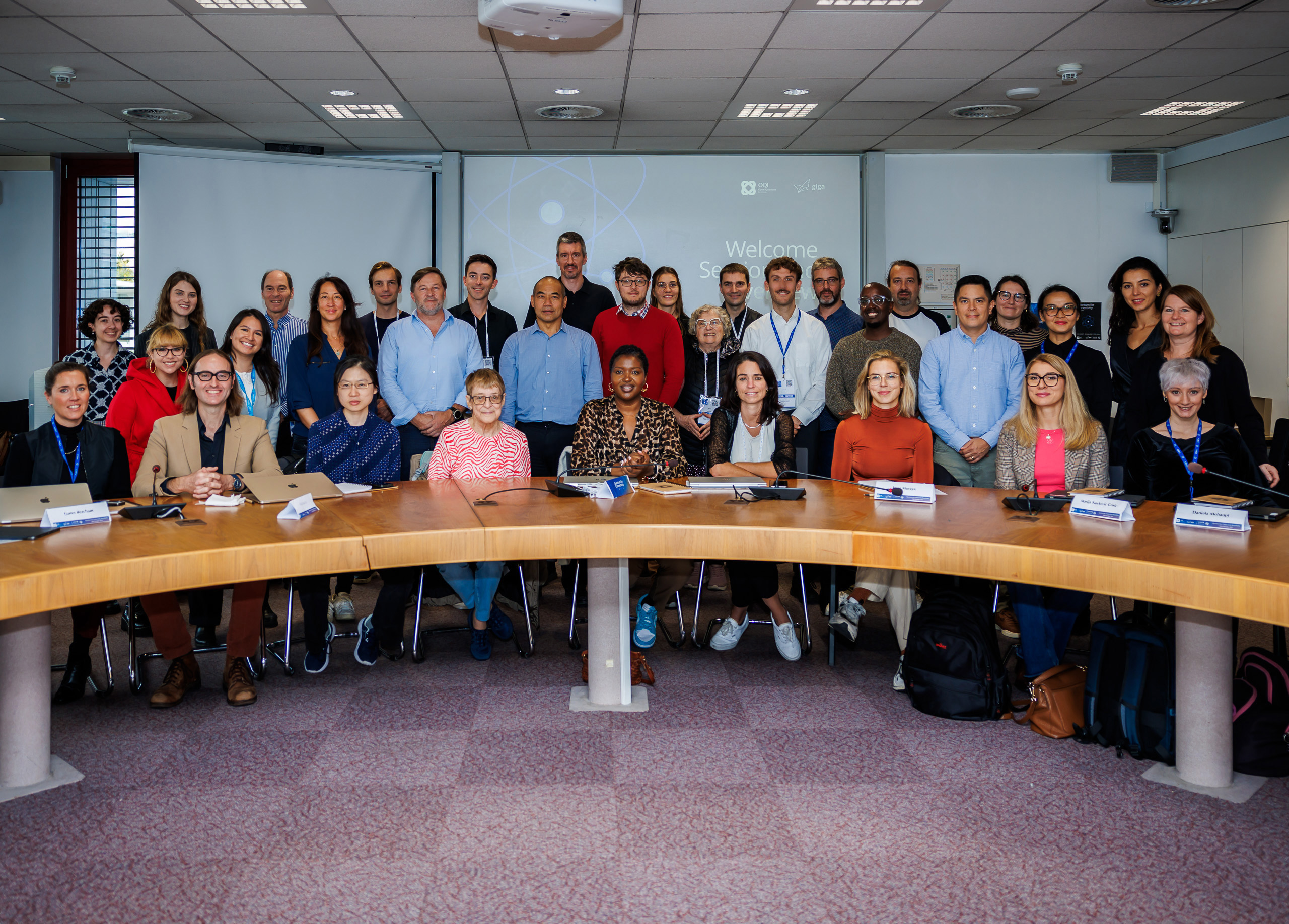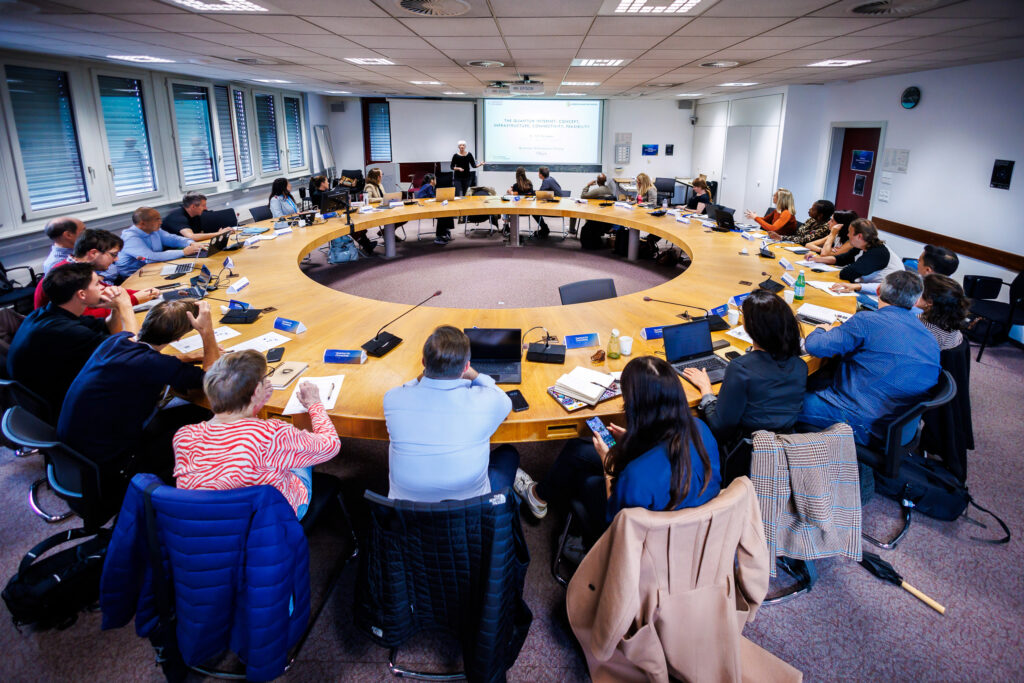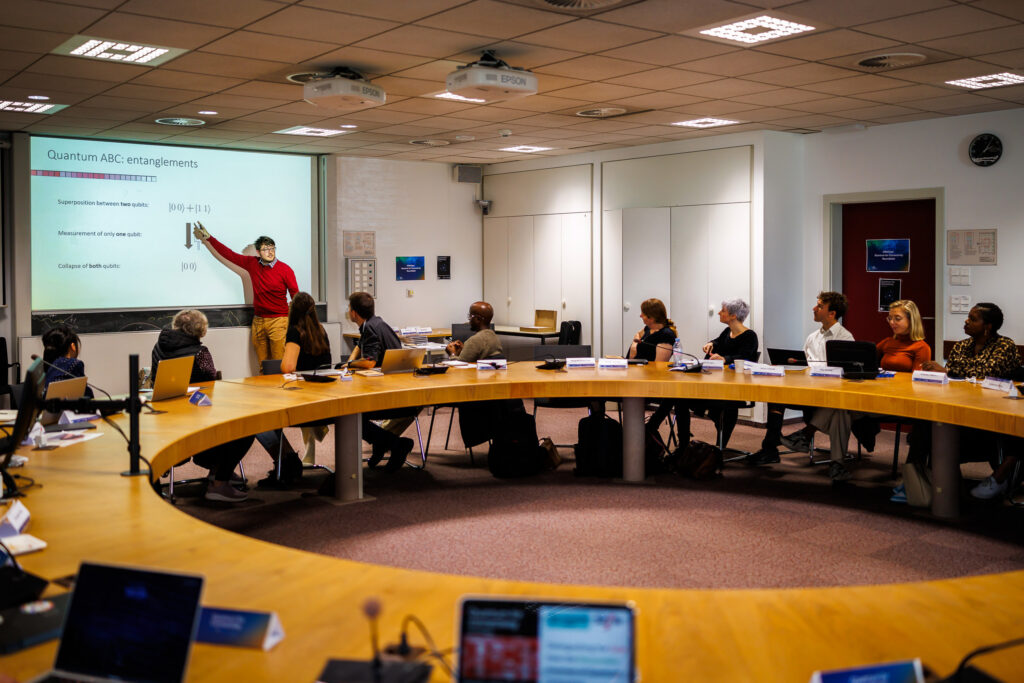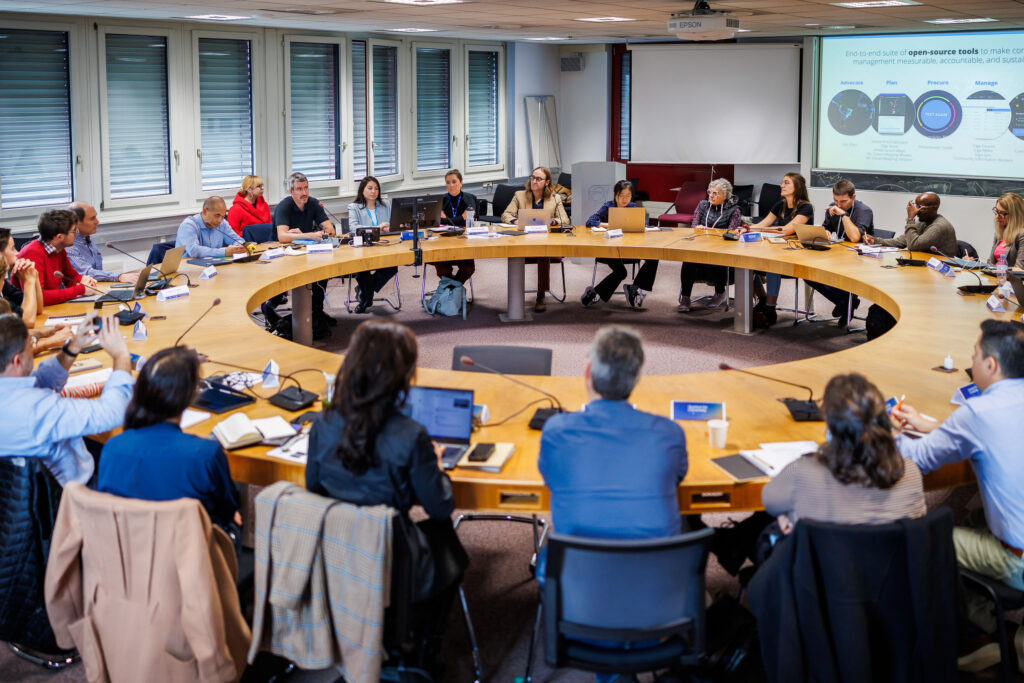Quantum for Connectivity Roundtable: advancing global education and connectivity to bridge the quantum digital divide
7th November 2024
Article by Alexia Yiannouli

Photo by Marc Bader
On Friday 18th October, CERN hosted the Quantum for Connectivity roundtable, co-organised by the Open Quantum Institute (OQI) and Giga, a UNICEF and International Telecommunications Union (ITU) initiative. The roundtable brought together over 30 experts from academia and industry to discuss how quantum technology can be used to accelerate the UN Sustainable Development Goals (SDGs), through advancing education and connectivity in underserved geographies.
This collaboration unites Giga’s goal to connect every school worldwide with the internet and OQI’s mission to promote inclusive access to quantum computing to advance the SDGs – exploring scalable solutions to enhance connectivity and to lay the foundation for quantum education to bridge the quantum divide. The roundtable began with a series of presentations, exploring topics from education to the ethical implications of quantum advancements.
Pierre Fromholz (University of Basel) set the stage, distinguishing between realistic and over-hyped expectations of quantum computing and how to redirect focus towards the tangible potential of the technology. Tiff Brydges (UNIGE) explored the feasibility of the quantum internet and its impact on global connectivity. The role of quantum education and the importance of preparing the next generation for the technology was outlined by Adrian Schmidt (Karlsruhe Institute of Technology), followed by an exploration of the ethical and practical considerations of quantum advancements by Eline de Jong (University of Amsterdam).
Paving the way to the roundtable discussions, the presentations opened up to a collective dialogue and rich exchange of ideas between participants, raising important questions around the intersection between quantum computing and digital connectivity. Key themes were explored by participants–including the importance of managing expectations around the emerging technology and developing global strategies to overcome challenges of accessibility and connectivity.
In discussions about expanding global access to quantum education and technology, engaging with quantum-underserved regions was collectively identified as a priority – underscoring the existing gaps that need to be addressed and highlighting how initiatives like OQI are actively working to overcome and anticipate these challenges.
An integrated approach to anticipating quantum technology and internet connectivity was discussed, identifying education as a fundamental pillar. Suggestions during the roundtable included developing resources to provide equitable access to quantum education and working closely with educators and policymakers on a global scale. From these discussions, important questions were raised: how do we build capacity around quantum, and through which means can we provide access to it?
The discussion then focused on potential applications of quantum technology for Giga’s mission. Participants were in collective agreement with placing emphasis on de-hyping the emerging technology, but still identified the promise of quantum communication to fulfil Giga’s goal of affordable connectivity for all schools in the near future, and the potential of quantum computing to speed up the solution of combinatorial optimisation problems that arise, especially in the context of connectivity network planning.
Combinatorial optimisation problems involve finding the best combination of choices from a large set of possibilities. In network planning, this could involve determining the optimal placement of routes or cables to ensure maximum coverage and efficiency. OQI is currently developing 10 quantum computing use cases, with several projects using combinatorial optimisation to tackle real-world problems through an SDG-focused approach – highlighting the importance of collaborations between initiatives such as Giga and OQI to advance global connectivity and to mitigate the quantum divide.
The insights and ideas shared during the Quantum for Connectivity roundtable serve as the foundation to outline Giga’s strategic actions for leveraging quantum technology in the global effort to address the digital divide. These initial discussions will also pave the way for Quantum Humanity: Quantum Computing and Artificial Intelligence for the Public Good–a flagship event to be hosted at CERN in April 2025, to continue the open dialogue and further explore the themes of global connectivity, education and public good in the advancement of quantum technology.
For more information about Giga, please visit: https://giga.global/ and for OQI, please visit: https://oqi.cern/.



